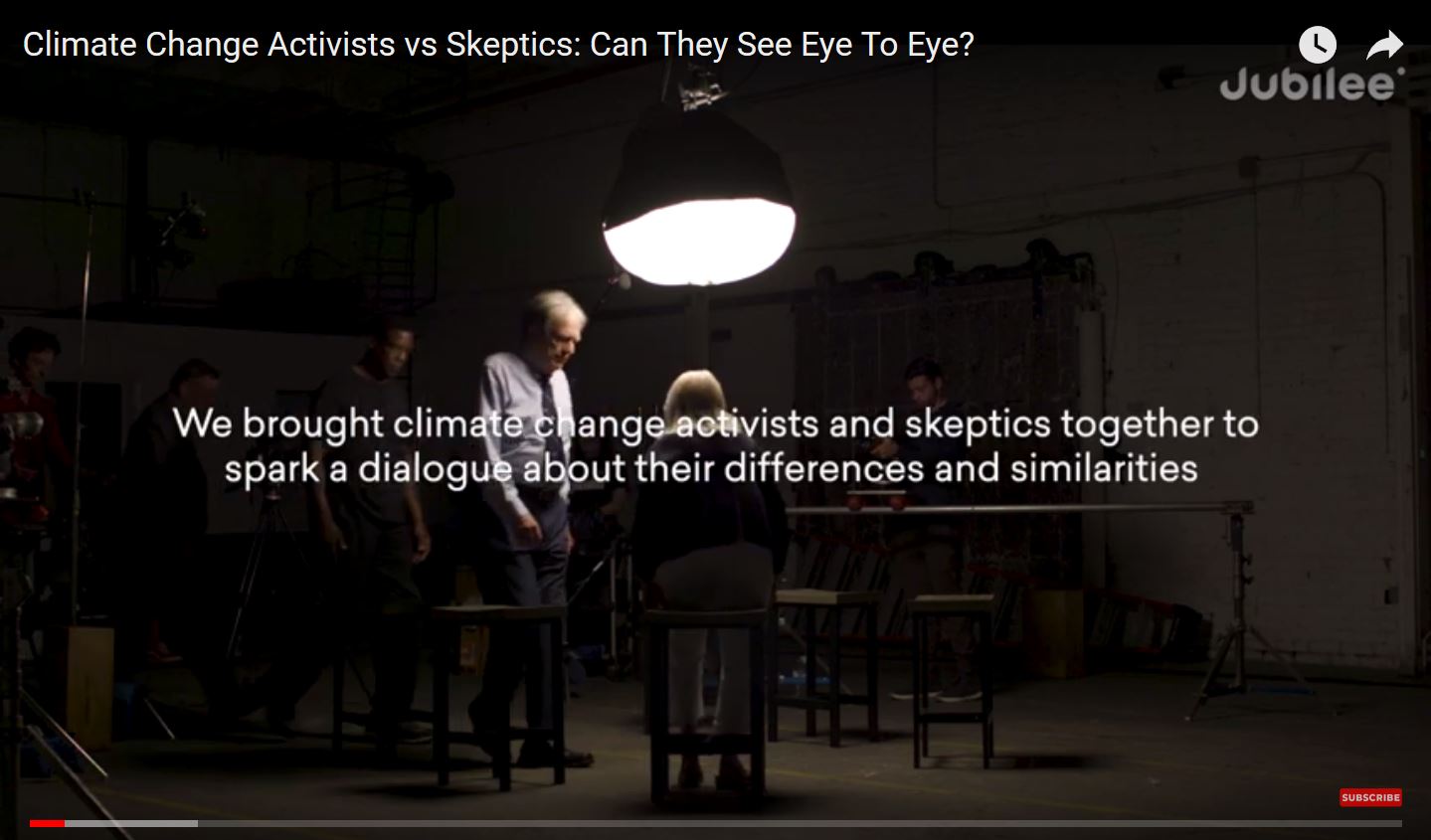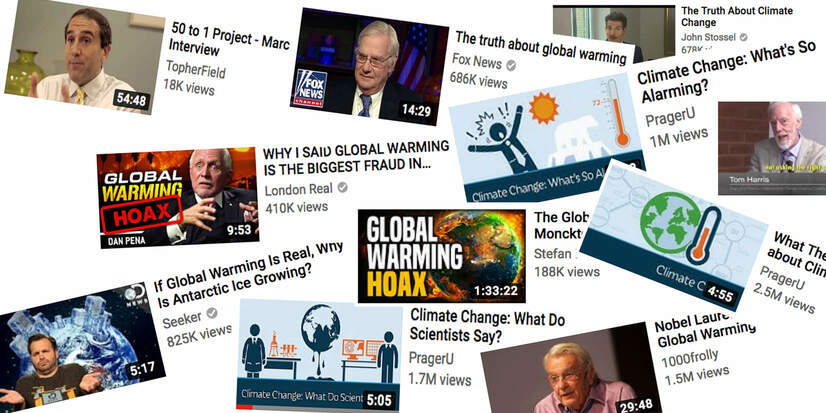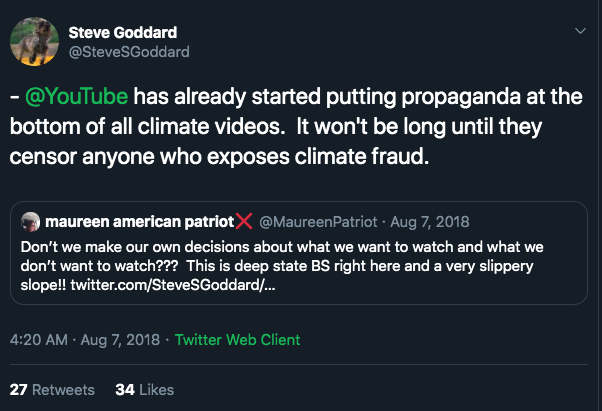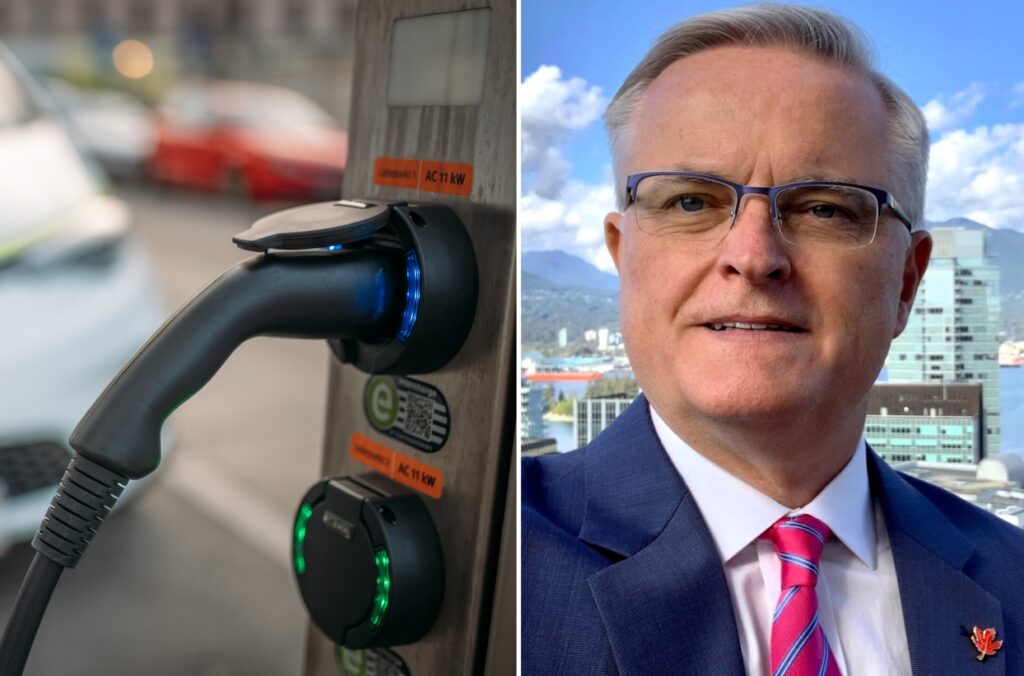Back in 2015, if you’d searched YouTube for information about climate change, the videos offered up might have left you with a warped sense of the state of climate science and the degree of scientific certainty that people are heating the world’s climate, a new study published in the journal Frontiers in Communication suggests.
That year was, at the time, the worst year on record for U.S. wildfires, including California’s Butte fire, which burned 900 buildings. It was the year when Pope Francis issued an encyclical urging rich countries to ward off climate change. And, for the first time in over 800,000 years, carbon dioxide levels in the atmosphere crossed 400 parts per million on average in 2015.
It was also a year when YouTube’s video recommendation algorithm — which has become central to controversies over the rise of white supremacism and far-right extremism online — served up an unusually high number of videos in response to climate-related keywords that fell outside of the scientific consensus on climate, the new study concludes.
“Searching YouTube for climate-science and climate-engineering-related terms finds fewer than half of the videos represent mainstream scientific views,” study author Dr. Joachim Allgaier, senior researcher at the RWTH Aachen University in Germany said in a statement about his findings.
“It’s alarming to find that the majority of videos propagate conspiracy theories about climate science and technology,” he added.
Misinformation researcher John Cook developed the Fact-Myth-Fallacy framework for battling myths about climate science and other topics.
Letting Nonsense Flourish
That pattern developed as YouTube rose to new heights of popularity, both in the U.S. and worldwide. Nearly three-quarters of U.S. adults, and 94 percent of 18 to 24 year-olds, report watching YouTube — and one-fifth of Americans described YouTube as “very important” for “understanding things happening in the world,” according to a November 2018 Pew Research Center study.
YouTube, where videos are generally less than 15 minutes long, relies heavily on keeping viewers watching longer with its “Up Next” sidebar — a feature responsible for over 70 percent of the time people spend on the site. That makes the selection of recommended videos, chosen by a proprietary algorithm, both important and — when it comes to factual information — very politically charged.
“The massive ‘library,’ generated by users with little editorial oversight, is bound to have untrue nonsense,” Bloomberg’s Mark Bergen explained in an April investigation into YouTube’s internal decision-making. “Instead, YouTube’s problem is that it allows the nonsense to flourish. And, in some cases, through its powerful artificial intelligence system, it even provides the fuel that lets it spread.”
YouTube’s recommendations, created by that algorithm, have had profound cultural impacts and have been cited as factors in the rise of the anti-vax movement opposing childhood vaccination, the spreading of white supremacist ideology, and even a surge in the number of flat Earthers.
When it comes to climate change, YouTube has also amplified views that fall outside of the scientific consensus, the new research shows.
‘Straightforward Conspiracy Theories’
The study examined a group of 200 YouTube videos and compared them against the scientific consensus on climate change, using the United Nations Intergovernmental Panel on Climate Change’s (IPCC) stance as a benchmark.
The 200 videos reflected the results of searching for 10 different keywords related to climate change, using the online anonymization service Tor to prevent prior views from influencing the search results. Most of the searches were conducted in 2015.
“Unexpectedly, the majority of the videos in the sample (107 videos) supports worldviews that are opposing scientific consensus views: 16 videos deny anthropogenic climate change and 91 videos in the sample propagate straightforward conspiracy theories about climate engineering and climate change,” the study concluded.
Those outside-of-the-mainstream videos attracted virtually the same number of views as the videos presenting information that was scientifically grounded, the study adds, noting that out of the roughly 34 million views attributed to those 200 videos, those supporting mainstream climate science positions racked up just 2,294 more views than those opposed.
Screen shots of climate science denial videos on YouTube.
“The way YouTube search algorithms work is not very transparent,” Allgaier continued. “We should be aware this powerful artificial intelligence is already making decisions for us, for example, if you choose to use ‘auto-play.’”
The search terms used in the study included not only “climate,” “climate change,” and “global warming,” but also “chemtrails” and “climate hacking,” which the study described as “terms that are often used by opponents of mainstream science.”
In some cases, conspiracy theorists advised their followers to adopt scientific language to make it harder for listeners to identify them as representing fringe views, the study said.
“From their point of view this strategy also has the advantage that ‘chemtrailers’ can now jump on the bandwagon when there are actual scientific discussions and events addressing technical options of artificial climate modification or manipulation,” Allgaier wrote.
DeSmog has previously covered the ways that YouTube and its algorithm have benefitted climate science denial.
“Despite the clear errors, the video has gathered more views than any other climate science denial clip on YouTube,” Graham Readfearn reported in February, describing a PragerU video by Canadian lobbyist and fossil fuels advocate Patrick Moore that claims there has been “no significant warming trend” in this century. “A search on YouTube for the most viewed “climate change” videos has Moore’s effort ranked 13th — searching for “global warming” has it ranked 19th. But where the problems really start, are when YouTube’s ‘up next’ algorithm takes a guess at what you might want to watch next after seeing Moore’s video.”
Noted climate science denier Steven Goddard (a pseudonym for Tony Heller) was not pleased with YouTube’s changes to fight misinformation on climate change.
YouTube has defended itself in numerous controversies surrounding its video recommendations by citing the principle of freedom of speech. It also recently said that it will also make some effort to promote more credible videos.
“Over the last year we’ve worked to better surface credible news sources across our site for people searching for news-related topics,” a YouTube spokesperson told The Guardian, “begun reducing recommendations of borderline content and videos that could misinform users in harmful ways, and introduced information panels to help give users more sources where they can fact-check information for themselves.”
Main image: “Climate Change Activists vs. Skeptics: Can they See Eye to Eye?” video. Credit: Screenshot from YouTubeSubscribe to our newsletter
Stay up to date with DeSmog news and alerts









